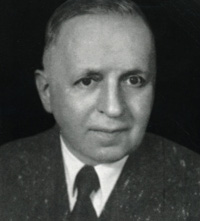Faik Bey KONITZA

Faik bey Konitza (1875-1942), also spelt Faik Konica, was perhaps the most influential of all Albanian writers and publishers of the turn of the twentieth century. He was born in April 1875 in the now Greek village of Konitza in the Pindus mountains, not far from the present Albanian border. After elementary schooling in Turkish in his native village, he studied in Shkodra, Constantinople and France, where he spent the seven years. He finished his education at Harvard University in the United States. It was during his years in France that he began to take an interest in his native language and his country’s history and literature, and to write articles on Albania for a French newspaper. In 1897 he moved to Brussels, where at the age of twenty-two he founded the periodical “Albania,” which was soon to become the most important organ of the Albanian press at the turn of the century. He moved to London in 1902 and continued to publish the journal there until 1909. In London he made friends with French poet and critic Guillaume Apollinaire (1880-1918) who stayed with him in 1903 and 1904. In the autumn of 1909, Faik Konitza emigrated to the United States. His first stop was Boston where he became editor of the newspaper “Dielli” (The Sun), founded that year by Fan Noli. In later years he was president of the “Vatra” Federation in Boston and resumed editing the newspaper “Dielli” there, in which he had his own column. In the summer of 1926, he was appointed Albanian ambassador to the United States by the dictator Ahmet Zogu (1895-1961), soon to become King Zog. Konitza held this post until the Italian invasion of his country over Easter 1939.
Faik bey Konitza unfortunately wrote little in the way of literature per se, but as a stylist, critic, publicist and political figure he had a tremendous impact on Albanian writing and culture at the turn of the century. His literary writings were fragmentary, a fact lamented by many of his compatriots during his lifetime. In “Dielli” from 1929 on, he edited the narrative of his travels to Albania, a series entitled “Shqiperia si m’u-duk” (How Albania Looked to Me), in which he expressed much criticism of various character types he had encountered there: bureaucrats, social climbers, and pretentious aristocrats, etc., but lavish praise for his employer, King Zog.
|
BACK

